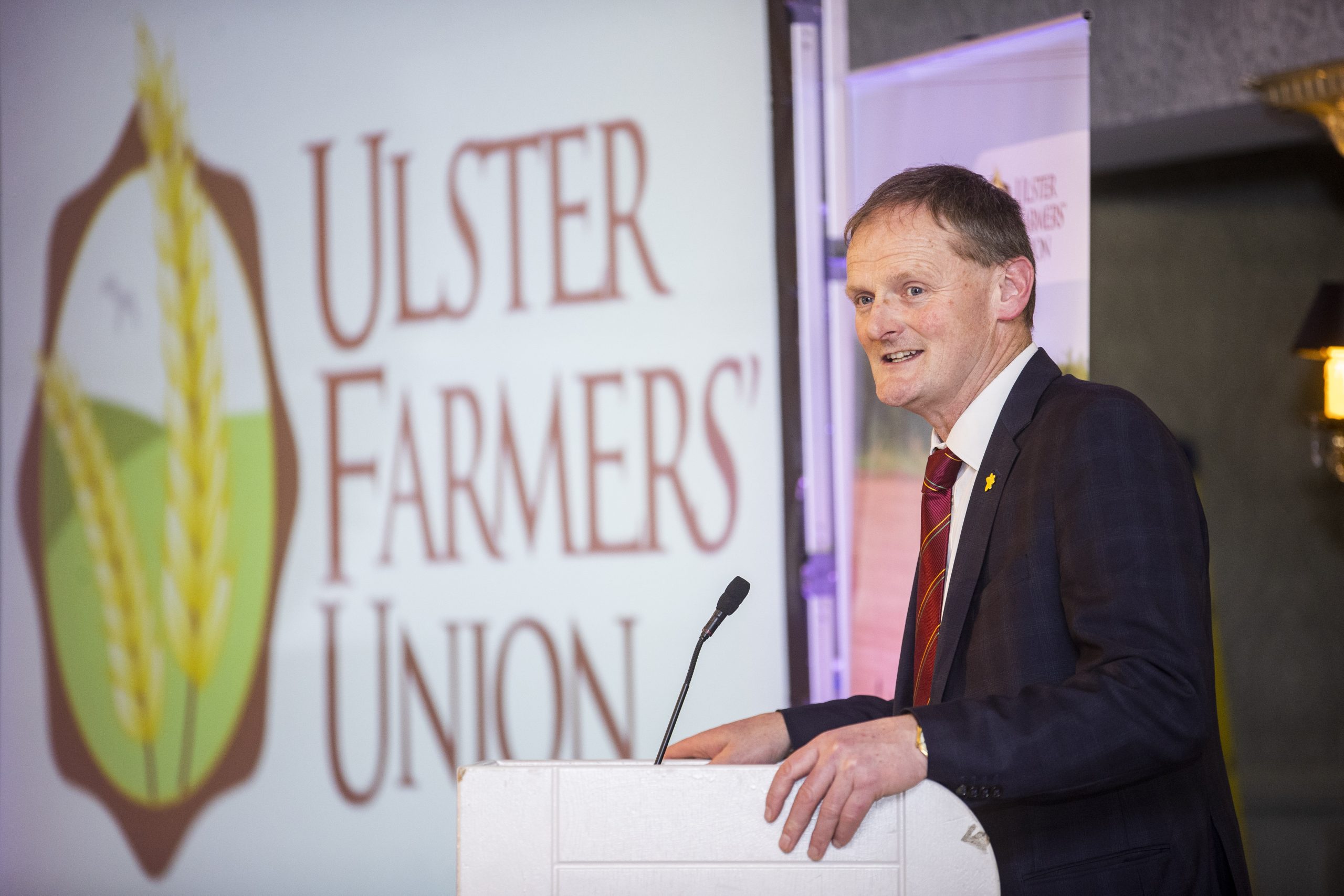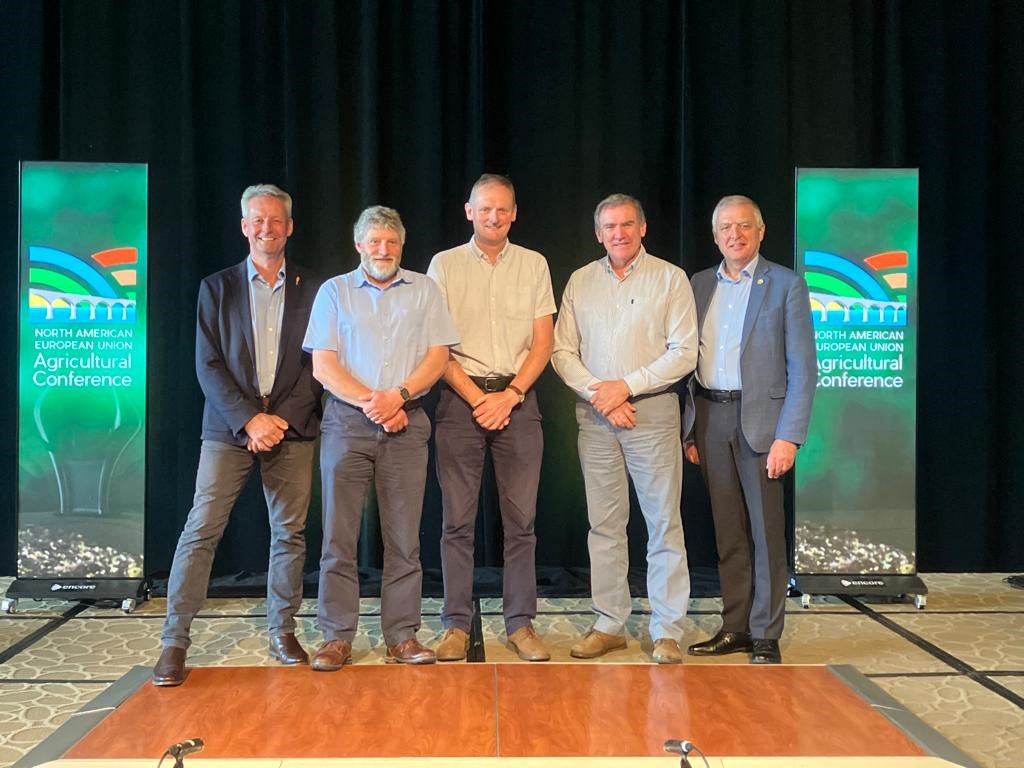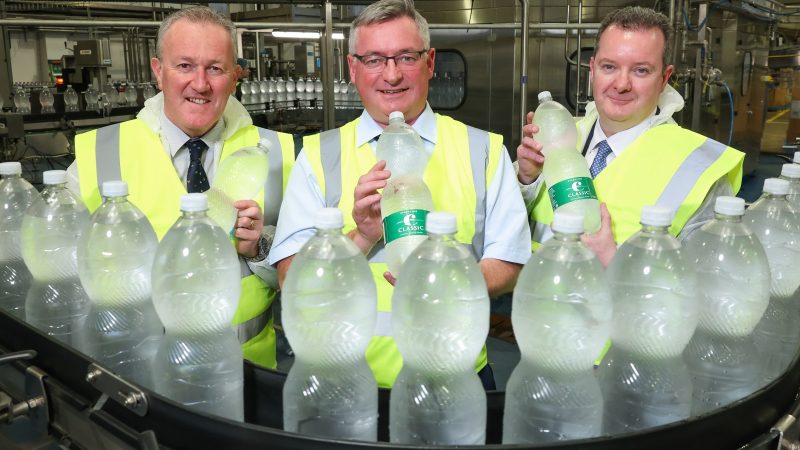Now is the time to build on successes

2023 was a challenging year for local farming from volatile weather to static and falling farmgate prices, and the increasing cost of production. Northern Ireland farmers have faced a perfect storm of environmental and economic challenges and are more stretched than ever before, as Ulster Farmers’ Union President, David Brown explains.
The wettest July on record made headline news but what was not highlighted was that due to the unseasonably wet ground conditions, livestock were housed much earlier than usual. The animals had to be fed bought-in feed or in some cases, silage was opened early adding additional cost and pressure for farmers. At the same time, feed and fertiliser prices remained at record levels.
Severe flooding was a major blow for growers in counties Down, Armagh and Antrim, particularly in the latter half of the year with many crops being damaged. Whatever produce did survive, its quality would have been impacted. Farmers put a huge amount of investment into producing a premium crop and are now trying to manage a serious financial hit.
DAIRY
Many local dairy farmers are continuing to lose money as they are not earning enough to cover production costs, meanwhile profits are being made further up the supply chain. The September 2023 base milk price average was 28.47p/l. To break even, farmers needed to be receiving at least 35p/l – 36p/l.
Northern Ireland has the third lowest milk price in Europe, but latest statistics show that our average farmgate milk price has now dipped below the five-year rolling average. This is a case of follow-the-leader. Once one processor drops the price, the others follow suit. We are fully aware that dairy commodity prices weakened but dairy companies put product into different markets which would mean differing returns. The rapid reduction in milk prices since late 2022 has outpaced any fall in input prices.
In 2024, sustainability payments will be introduced for dairy farmers. It is positive that financial incentives are being created to support local dairy farmers to carry out more environmental works on farm, but farmers need to be clear and confident about what is being asked of them otherwise it could cause issues down the line. In some cases, there is a disjoint between sustainability payments and new milk supply agreements.

SUSTAINABILITY
The agri-food sector in Northern Ireland is seeking to address the sustainability challenge. A sustainable farm business is a profitable one and the ethos behind the new agriculture policy is to help farmers to reduce emissions further, while supporting local food production and farm profitability.
Many people ask us what is coming down the track with future agriculture policy. Some of the detail is emerging but we do not have all the information. It is critical that DAERA effectively communicates with farmers about the new schemes and measures that will be phased in over the next number of years. This is vital to help ensure the sustainability of our unique family farm structure as we move forward, delivering for the environment, local communities and consumers.
The Soil Nutrient Health Scheme was one of the first initiatives to be rolled out under the new ag policy. Northern Ireland is setting a high global standard as the first region to establish an extensive baseline of all farms on soil nutrients.
More recently, farming organisations came together to launch a sustainable ruminant genetics programme to improve the efficiency of our livestock. The roll out of carbon surveys, required by both government and those we supply, is also underway and will provide crucial evidence that our production systems are amongst the most efficient in the world.
We have made great gains in reducing our emissions to date while producing sustainable food, but we have the potential to do so much more with the right policy and support. Climate change targets for agriculture are extremely challenging, but our farmers are working to make it happen. We are at the forefront of the changing climate and it’s in our best interest to combat this global issue. However, it must be recognised that we are one industry within an entire society. It’s critical that everyone steps up to the mark.

2024
Looking to 2024, we can build on our successes and deliver more for the country. Agriculture is key to tackling two of the biggest challenges that we face at a national and global level, producing enough food to feed a growing population (now eight billion) while also tackling climate change.
We have the ambition and drive to produce more renewable energy, enhance our environment, care for our countryside and work towards our commitment to reach environmental targets, all while producing sustainable food.
To do this, we need to ensure that we build profitability and resilience into our farm businesses to allow us to safeguard the nation’s food and energy security. It is vital that the government delivers the policies and investment needed to unlock a thriving food and farming sector.
Next year, we will almost certainly be heading towards a general election, with manifestos being finalised and politicians getting into campaign mode. So, the clock is ticking. Time is almost up for this government to start walking the talk.
TO READ DAVID BROWN’S INTERVIEW IN THE 2024 NEIGHBOURHOOD RETAILER YEARBOOK AND MARKETING GUIDE, CLICK HERE







